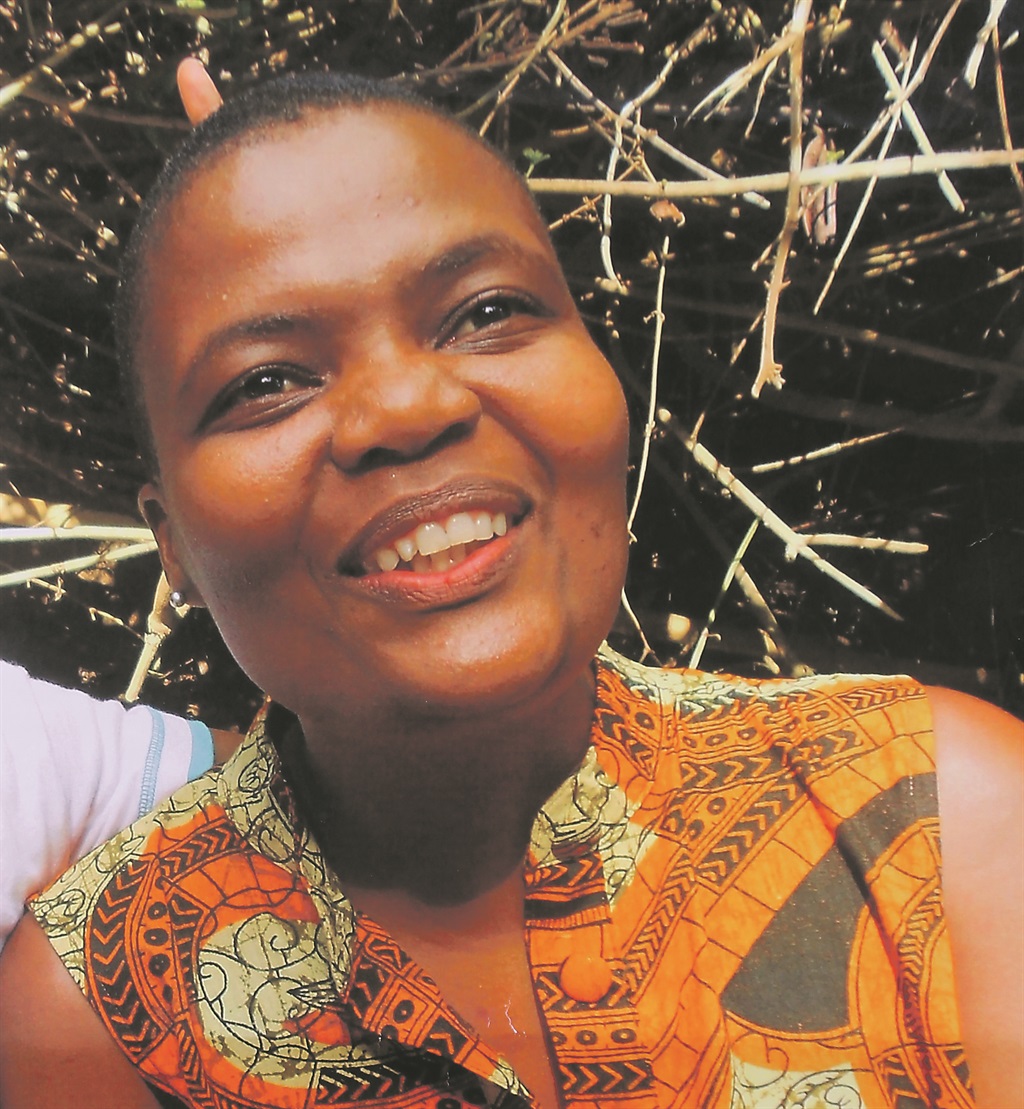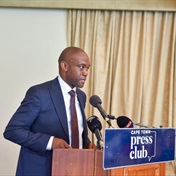
The voice on the other side of the phone was crackling with fear:
“UFezeka lona. Lestory enesibhalayo asilona iqiniso. Amanga wodwa [This is Fezeka. The story you are about to write is not true. It is a total lie].”
The hysterical person went on to insist that Jacob Zuma had not raped her and if the Sunday Times published the story, she would sue our heads off.
After a long and rapid monologue in which she stressed that no rape charge bearing her name existed, she eventually let me get a word in.
I explained to her that we did indeed have a story that a charge of rape had been laid against Zuma going into the next day’s paper.
But because the law, ethics, the Press Code and basic morality did not allow us to publish the names of rape survivors, the young woman who had laid the charge would not be identified.
“Please do not publish that story. It is not true. I was not raped,” the terrified voice insisted.
I told her that maybe the person we were writing about was not her, so she should not be concerned.
No, she said, the story was about her and it was not true.
The conversation ended in a stalemate, with me failing to commit to not running the story and her still terrified about what the next day would bring should the story run.
On that same afternoon, her anguished mother called us twice, begging that the story be kept out of the newspaper as it would endanger her daughter’s life.
She repeated the line that her daughter had not been raped and that she had not laid a charge.
More pressure was to come during the course of that day as desperation increased.
A firm but gentle caller that evening was one Michael Hulley, Zuma’s personal lawyer. Deploying legal persuasion, Hulley was threatening but not aggressive.
He was, however, clear: There had been no rape, there was no charge, there was nothing. So if we went ahead, the calamities that befell Sodom and Gomorrah would descend upon us.
We were later to learn that Fezekile Ntsukela Kuzwayo was not alone when she made that phone call.
She was in what she believed was a “safe house”, where she was being “protected” by people whose sole interest was to get her to recant her story and withdraw the charges.
It would also be revealed that a major operation was under way that week to manage the alleged rape out of existence.
The case had been removed from Hillbrow Police Station and transferred to Gauteng’s provincial police headquarters, where it was placed in the hands of senior officers who were sworn to secrecy.
But investigative journalists Dumisane Lubisi, Dominic Mahlangu and Wisani waka Ngobeni made sure that this would not be the case.
Without the benefit of a case number or a charge office entry, they pieced together an incontestable story that a charge of rape had been laid against Zuma by a young relative with whom he had had a sexual encounter at his home in Forest Town, Johannesburg.
When the story hit the streets the next day with the headline “Zuma Rape Claim”, it appeared alongside a rival newspaper’s headline, which screamed “Woman denies Zuma rape claim”.
Those assigned to clean up after Zuma had given a pliable journalist access to Fezeka.
She had been coerced to rubbish our story before it even came out.
With the proverbial gun to her head (who knows, there might have been a real gun), Fezeka went on record, using her name to deny that she had ever laid a charge.
If the Forest Town ordeal had not been a rape, as the court later ruled, what she went through at the hands of those who wished to conceal it definitely was one. It was a rape of her soul, her dignity, her honesty, her emotions and her very being.
Fezeka, or Khwezi as she became known, was to be raped many times over the next decade. When she courageously defied her torturers and decided to proceed with the case, she and her family were subjected to immense pressure.
Powerful individuals, whom she, her mother and her friends looked up to, were dispatched to persuade her mother to accept inhlawulo (a cattle-denominated fine) from uBaba for his transgression. A number of cattle would do the healing, went the logic. Thus was her dignity and self-worth raped.
Some of these emissaries were occupying high office and hold even higher office today.
From the offices they occupy, they make lofty speeches about the place of women in society and the scourge of domestic abuse.
A similar kind of rape was perpetrated by people whom she considered family. In trying to get her to drop the charge, they relayed the message that her honour as a woman and a human being was worth less than uBaba’s path to power, and she therefore had to sacrifice this to that greater cause.
Her trauma would be escalated during the trial itself. Inside court, she was stripped of all self-worth.
The line of defence of the accused was to reduce her to an immoral slut who had a penchant for crying rape. Her wearing of the kanga showed that she had been out to seduce her malume that night in Forest Town.
Even the accused’s daughter – also a young woman age – joined in the raping of her morality by bolstering the seductress narrative.
As if her brutal rape inside the courtroom was not enough, outside she was being subjected to a mass gang-rape.
Hundreds – sometimes thousands – of people would gather outside to curse her as she arrived in the morning and as she left in the late afternoon.
Day in, day out, she endured intolerable abuse from the mob that bayed for her blood, shouting out:
“Sifebe! Nondindwa! Witch! Bitch! Whore! Devil! Lucifer! Satan!” Some threatened to rape her there and then on the stairs of the court. Some threatened to kill her.
The man in whose name this frenzied mob was doing these evil deeds – the future president of our republic – was unperturbed by the goings-on outside.
At no point did he see fit to tell them that in this civilised republic of ours, this is not done.
Neither did those who were driving the campaign that would lead to Zuma’s crowning in Polokwane in Limpopo the following year.
Unable to join in the rabid yelling on the streets, in cowardly fashion, they sent their youth leaders to goad the crowd.
The celebrations that followed Zuma’s acquittal were the next step in the rape of Fezeka.
Leading the celebrations was the man himself, belting out his trademark Umshini Wami song as the crowds swayed and piled more crude insults on the young woman.
It was like New Year’s Eve as expensive whiskies and champagnes flowed at parties across South Africa.
She was then forced to flee into a second exile, far away from the land that her parents had fought to free and for which her father had laid down his life.
Raped of her nationhood.
The most searing of these rapes was the stripping of her identity. For the 10 years that followed, she was Fezeka only to those who knew her personally. To the world, she was Khwezi.
To those who knew her personally, she was a daughter, a sibling, a friend and a colleague.
A happy person, by all accounts. To the world, she was Zuma’s rape accuser.
Until her death, that is who she was – a violated soul who will be remembered for what someone did to her.
As heart-rending as the story of Fezeka is, she can rest in the knowledge that her bravery gave courage to tens of thousands of other violated women.
Her steadfastness in ploughing forth with her quest for justice also gave the nation a glimpse into the psyche and character of the man it would later choose as president.
After being acquitted of rape, Zuma successfully ran for the presidency of the ANC, which catapulted him to the highest office in the land.
Once there, he proceeded to violate South Africa – its Constitution, its finances, its institutions, its morality, its ethics and its character.
In death, Fezekile Ntsukela Kuzwayo was rehumanised. She got her name back.
Family and friends spoke of a real human being with a personality, a sense of humour, likes and hates, ambitions and fears.
She was someone you would have liked to meet and get to know and talk to about the weather, agriculture and poetry.
She finally had a face.
TALK TO US
How do you regard the life and passing on of Fezeka?
SMS us on 35697 using the keyword KHWEZI. Please include your name and province. SMSes cost R1.50




 Publications
Publications
 Partners
Partners























